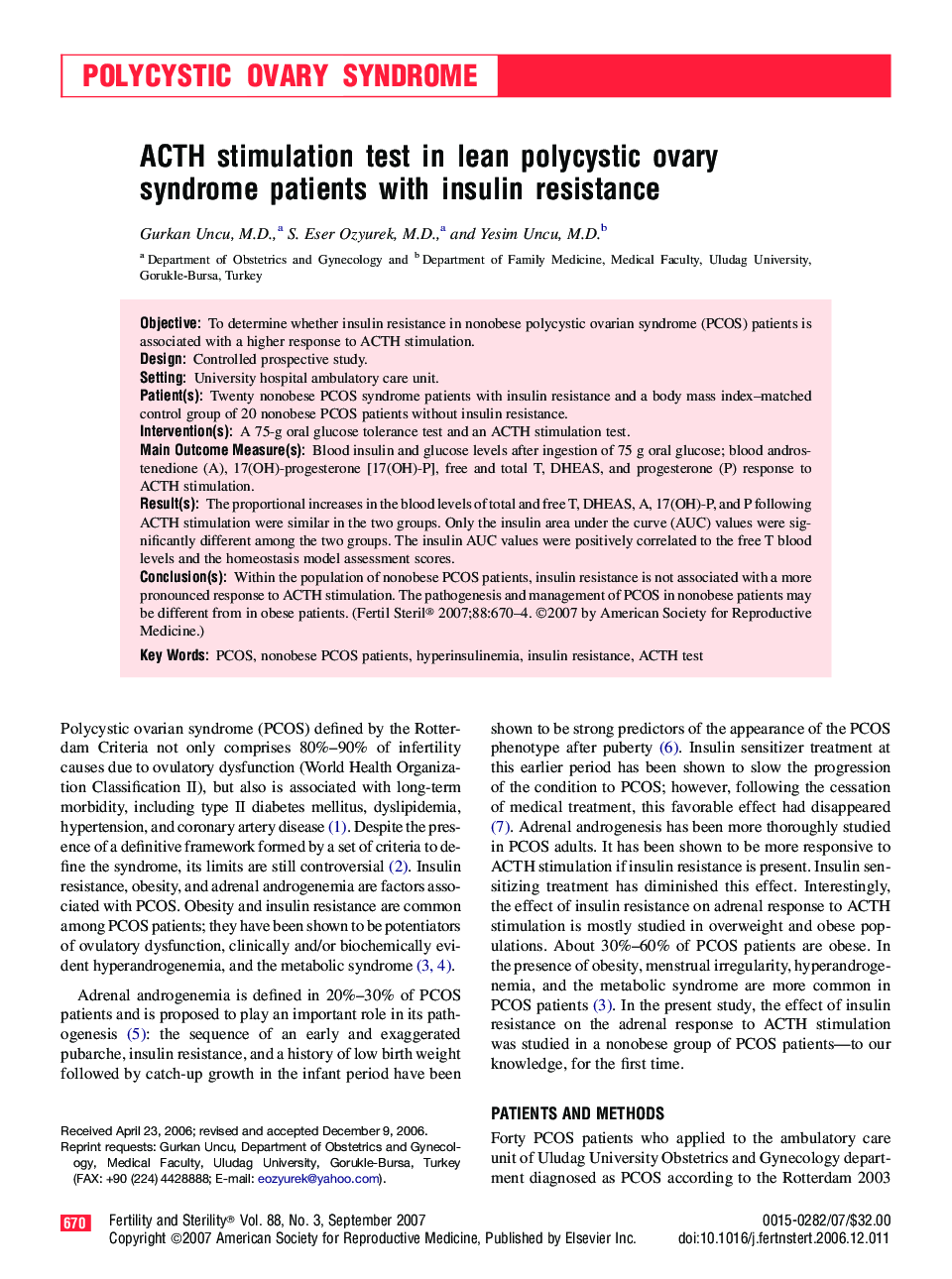| Article ID | Journal | Published Year | Pages | File Type |
|---|---|---|---|---|
| 3939733 | Fertility and Sterility | 2007 | 5 Pages |
ObjectiveTo determine whether insulin resistance in nonobese polycystic ovarian syndrome (PCOS) patients is associated with a higher response to ACTH stimulation.DesignControlled prospective study.SettingUniversity hospital ambulatory care unit.Patient(s)Twenty nonobese PCOS syndrome patients with insulin resistance and a body mass index–matched control group of 20 nonobese PCOS patients without insulin resistance.Intervention(s)A 75-g oral glucose tolerance test and an ACTH stimulation test.Main Outcome Measure(s)Blood insulin and glucose levels after ingestion of 75 g oral glucose; blood androstenedione (A), 17(OH)-progesterone [17(OH)-P], free and total T, DHEAS, and progesterone (P) response to ACTH stimulation.Result(s)The proportional increases in the blood levels of total and free T, DHEAS, A, 17(OH)-P, and P following ACTH stimulation were similar in the two groups. Only the insulin area under the curve (AUC) values were significantly different among the two groups. The insulin AUC values were positively correlated to the free T blood levels and the homeostasis model assessment scores.Conclusion(s)Within the population of nonobese PCOS patients, insulin resistance is not associated with a more pronounced response to ACTH stimulation. The pathogenesis and management of PCOS in nonobese patients may be different from in obese patients.
